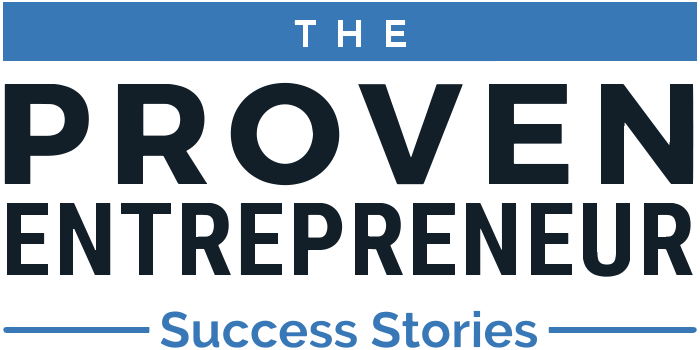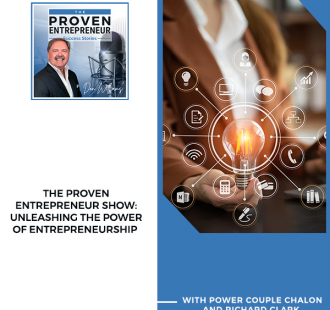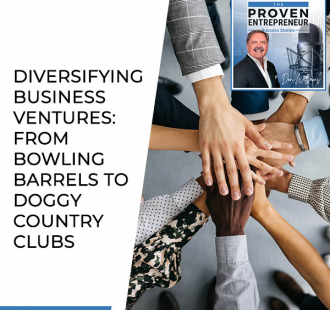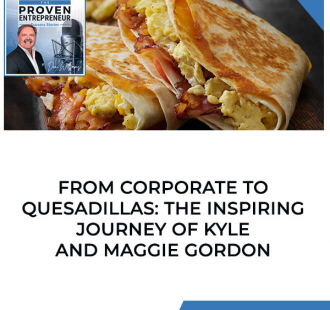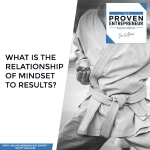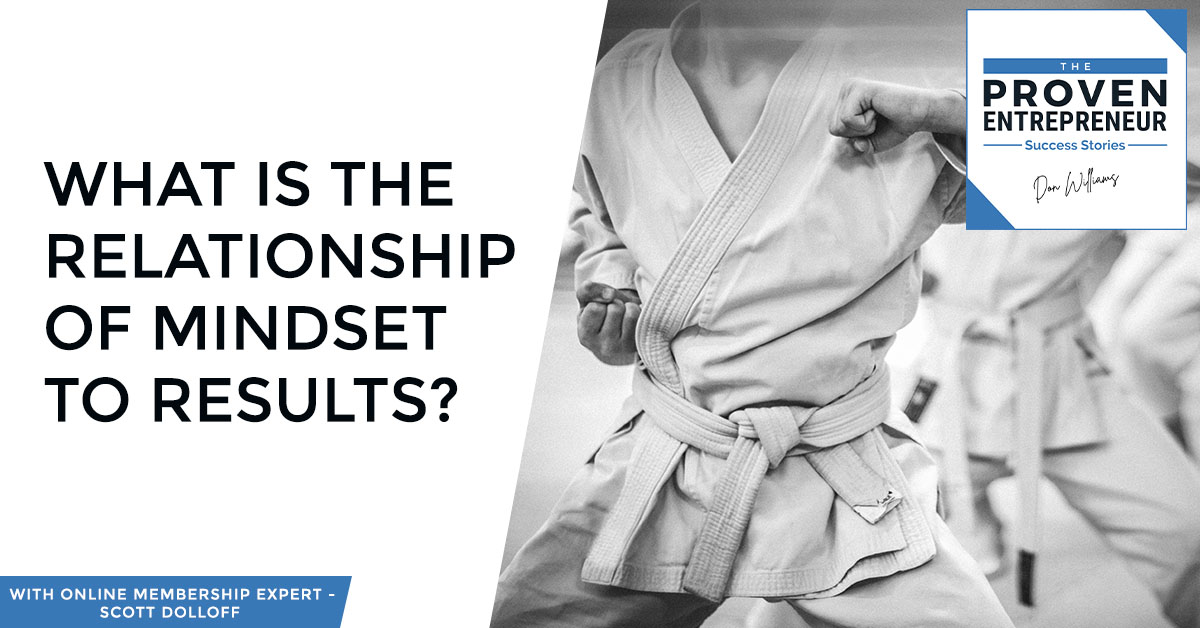
Scott Dolloff is the CEO of Rainmaker Membership Systems. Listen to Scott’s journey through the Martial Arts industry to become one of the nation’s most successful membership programs. Scott’s newest venture is a collaboration with none other than Jay Abraham.
—
Listen to the podcast here
What Is The Relationship Of Mindset To Results? Online Membership Expert – Scott Dolloff
I am so excited for our guest. I met Scott years ago out in California at a conference. It turns out we’re neighbors. We both live in the Dallas-Fort Worth area. Our guest is Scott Dolloff. Scott, welcome to the show.
Thanks so much for having me.
It’s my pleasure. Thank you so much. Let’s jump right in. Tell me the name of your business and what you are doing now.
We own a company called Rainmaker Membership Systems. We started primarily in martial arts schools. It’s for martial arts, cheer dance, gymnastics, that kind of thing. It’s used to grow their gyms or academies, manage their tuition, billing, marketing, all that stuff.
Those are karate studios, gyms, and the like would have children in the program. Their parents are the paying customers, and the children are the participating customers. You started this. How long have you had it?
The software has been around since 2003. We started the company in 2010.
Were you using it for yourself?
Exactly.
You took something that was costing you money and turned it into income-producing.
It wasn’t costing us much because it didn’t do much. It did things perfectly for what we needed, but as we started allowing other people to start using it, that’s when things changed. It got a lot more difficult. The development became more important for details to be right. Since we were the ones developing it, we knew how that works and things like that to make it work right. We couldn’t depend on that once we started letting everybody use it.
Let me ask you. Are you a coder? Are you a developer?
I started with a friend of mine. He taught himself how to program. He wrote the program. I came up with the idea as far as what it would do, and it took off.
You have to make big things smaller in order to grow. Click To TweetThat’s a very common success model with entrepreneurs. Somebody is the visionary. He sees what does not yet exist, and then somebody is the integrator. They build it. It’s a very common model. How many customers do you have now?
We have about 2,400.
On software, there are typically a couple of different ways to monetize that. Is that a one-time purchase? Is it a subscription?
It’s a subscription. It’s a monthly recurring fee.
Tell me the top three benefits a customer gets for using your software solution.
Number one, it makes it easier for their customers tos, text messages, consistent email marketing, a lot of automation, things like that.
It’s easy for your customer and their customer. We certainly know that in selling, anytime we can make something easy, simple, and if we can add fun, that’s the trifecta. You almost can’t keep people from buying from you. Let’s go way back to young Scott. Where are you from? Were your parents entrepreneurs?
My parents were not entrepreneurs. My dad was a turnaround manage their own accounts, update their forms of payment, see their attendance history, and see everything about their experience in that specific gym. For the business itself, it eliminates the mundane work nobody wants to do but needs to be done consistently from making appointments, reminder callmanager for Walmart. Every year, we would move from one area to another. He would work on a store and get it back up to standards. We would go on and move to the next city, next area, and start all over again. He was the fix-it guy. My mom stayed at home for a while. She ended up going to work as well. She ended up managing an HVAC company. She didn’t have any experience in that, but she had a lot of experience in managing books, working with people, and that kind of stuff. I learned a lot from both of them as far as business is concerned.
Talk about work ethic. In my first job, I mowed the grass not because I got paid but because there were consequences for the grass not being mowed. That was my first job. If you didn’t get paid, it’s not really a job. It was just my responsibility. Talk to us about early responsibilities and/or the first job.
I had all my responsibilities. From the time I was eight years old, I was doing laundry, cleaning, kitchen, cooking meals, and taking care of the house because my mom went to work. We would get home from school and that’s what I do every day. It’s between that and homework. The first thing that I did was to make money. I probably did a lot of what people did. I had lemonade stands. I started selling brownies and snacks as well.
Later I did lawnmowing. I started doing some commercial properties, things like that. When I was thirteen, I started teaching martial arts as an assistant, started learning the business, and ended up buying the school that I grew up in when I was eighteen. I then started learning how to do business. It was a whole different experience.
You were entrepreneul as a child. As a very young man, you stepped into the world of entrepreneurship and found out that, “There’s a lot I don’t know.”

There was a lot I didn’t know. It was painful.
I opened my first company at 26. I did not know what a P&L or a balance sheet was. I was ill-equipped as the owner. I was well-equipped as a salesman and sales manager. If you can sell enough, you can afford to figure everything else out. If you can’t sell enough, that’s a real problem. Was that here in DFW?
It was here in DFW.
I’ll share this with you. Last fall of 2021, I was in Oklahoma City. That was where Century Martial Arts was way back in the day where Chuck Norris was.
He was the sponsor.
I met another entrepreneur who had a facility but also sold equipment. I was like, “I know somebody in Dallas-Fort Worth.” He’s like, “I know Scott.” I was like, “Small world.” You were born and raised and did some entrepreneurial stuff. This is so common. In about 40 or 50 interviews, I have yet to find someone whose parents did not instill a very strong work ethic. It sounds like your folks did. You’re going to school, taking care of your schoolwork and the house.
In my own story, my father was a United States Marine. I got my hair cut every Tuesday. Not that your haircut grows much Tuesday to Tuesday, but that’s the Marine way. We get haircuts on Tuesdays. I was spit shining shoes in kindergarten. Work ethic is very important. How did you come to buy a school you grew up in as a martial artist at eighteen years old?
I got the offer to do it. My boss had been doing another business on the side. He was ready to make a transition over to that full-time instead of the martial arts school. He offered me to buy the business. At first, I said no because I was going to go off to school. I went off to school for about six weeks. I then got another call and said, “I want you to buy the school.” I said, “Okay.” I moved back. I had the money saved. I’d earned quite a bit of money teaching martial arts up until then. I came back and put a down payment and financed the rest for over eighteen months. That was it.
Principal’s there, saving that money, having a little capital and a little owner finance. Many businesses are bought with not very much money upfront but an earnout. A good buddy of ours, Roland Frasier, teaches how to do that very well. At eighteen, you owned your own martial arts company. I went to college for a minute. I was making too much money. I said, “I’m not sticking around for this.” What happened in between the first martial arts studio and software company now? Give us a little bit of that journey.
I had about 150 students when I started. Within a year, it had 88 students. I did not know how to recruit and enroll new members. I thought it was all about teaching classes. It was a painful lesson. After that, I got on a Greyhound bus because I couldn’t afford a plane ticket. One of my earliest mentors said, “If you can get here, I’ll finance the conference for you.” I went to Irvine, California, on a Greyhound bus.
It was the longest bus trip ever. It was painful going there. I was excited, but coming back, I was more excited based on everything I learned. I made all kinds of sweeping changes that were very painful as far as making announcements to the parents, telling them things that they were not paying for, and they were going to start being charged for. Those are things that I was forced to do or I was going to go out of business. It was intimidating to have to confront all these customers. I brought them in two different meetings, lined them all up, having to sit down in front of me, and laid out the plans. It was difficult.
After that, I finally turned things around. When I was probably 26 or 25, I started getting into websites. A friend of mine was doing well at generating leads with his website. I taught myself how to build websites. Before I knew it, I was doing search engine optimization for other martial arts schools that were friends of mine. That turned into a business that was pretty much equal to what I was doing in the martial arts business. I finally sold the school and did SEO full-time. That got old for me real quick.
All the pain, trials, and challenges that you're going to go through will be worth it in the end. Click To TweetI talked to my friend and said, “I want to start selling the software.” He goes, “Nobody’s going to buy the software. It’s very specific to us.” I said, “I want to give it away to my SEO clients. It’s another sticking point for them as far as their monthly subscription to me. I’ll pay you half of what I would charge them to give them the software.” He said, “Okay,” knowing that it wasn’t going to do anything. That took off. Within six months, it was either 200 or 300 clients. It kept growing from there.
You looked past the naysayer and said, “It might work. I’m going to do it anyway. I believe enough to put my own money in it. I’m going to pay you even when I’m not earning.” You saw that grow right off the bat. If you don’t mind, think back into your entrepreneurial journey of a hard moment. You’ve already shared you were a great leader and handled difficult conversations at a very early age.
Customers are always risky. They might leave. The customer isn’t always right. I love Herb Kelleher. I think he was the first one who said, “The customer isn’t always right, but they do always pay the bill.” We need them to stick around. We need cashflow. While every success story has some pretty significant failings, is there somewhere along the way or something there you could share?
We were talking about managing finances, P&Ls, and stuff like that. I was making what I thought was pretty good money at the time when I was about 24 or 25. I was not paying my payroll taxes. I was like, “I’ll get to it.” I was an offsite owner at the time and lived in what I thought was life. I just thought, “I’ll get to the paperwork. I’ll write a check. It will be done.” It came to a point where I was like, “I’ve got to take care of this.”
I got all the tax insurances on it. I did everything. I got back a bill with fines and this and that for $150,000. Things changed really quickly. It got real intense fast. I started loving accounts. This was 2008 because the business had gone South at the same time. I didn’t have the cashflow that I did before. I had to turn things around as best as I could. I closed down a corporation and restarted another corporation. That was a difficult time.
There’s no bigger issue with IRS and 941 taxes.
That’s one thing you cannot get out of. Bankruptcy doesn’t do it.
That’s what they call trust account taxes. If you’re a starting entrepreneur and have questions about that, reach out to your accounting counsel now. They’re not very patient and understanding about those types of issues.
They have all the leverage.
Thanks for sharing that. That’s helpful to some companies starting out. We’re still at the tail end of the pandemic. Before, I did go to the opening day of the Texas Rangers with 40,000 of my closest friends. We’ll see how that went. Warp speed during the pandemic is a pretty popular term because of the vaccination program. What about a warp speed moment? Sometimes in your business, things are going good. All of the sudden, the clouds parted, the sun shone, the angels sang, and you had rapid growth, which almost every entrepreneur hits periods of that. Is there one of those you could share?
It was years ago. We had the server systeme software that you lease on a contractual basis. It’s offsite. It’s in the cloud. We were going to have to upgrade. We got back this proposal, and this was a serious proposal. It was formal paperwork and all this stuff. I have the salesperson that’s calling me all the time saying, “If you can do it now, we can give you some early incentives.” I’m like for th, “This is acting like this is a big deal.” I got nervous all of a sudden. I started looking at the total contract amount. I was like, “I could buy a house with this.” I was like, “I don’t know if this is the right thing.”
I started thinking about it. I was like, “If I’m not able to make this decision now, I’ll never be able to make it later. I’m not going to grow slowly into being able to make these financial decisions.” I said, “I’m going to go for it.” It was a time when I figured out that you have to make big things smaller in order to grow. It helped me perspective-wise to see other problems in a different way and opportunities. It changed the way I thought and performed in a lot of different areas of the business.

Make big things smaller. A comment is, do things scared. I know it’s comfortable in there, but get out, exit your comfort zone, and make those big things smaller because so much of it is perception anyway. Is it really big? It depends on how you look at it.
If we think it’s big, it may always be too big.
I have an elderly aunt and uncle. As they are progressing age, it’s interesting to me how their lives get smaller, and items in their lives get bigger. It’s the things that a 33-year career Navy Officer that would never have been a topic of conversation are now pretty important. That’s part of life. I love that. That’s worth the price of admission right there, folks. Make big things smaller. Thank you.
Let’s go all the way back to twenty-year-old Scott. You’ve had the martial arts studio for a couple of years. If you could time travel back to Scott now, what you know now, accumulation of all your experiences, everything you’ve learned, and you could share one piece of advice with a twenty-year-old Scott, what would that one piece of advice be?
My first instinct would be, “Don’t do it.” It looks nice, fancy, and you’re on top of the world all the time. In order to look that way, there’s a big price to pay. There’s a lot underneath that most people don’t see that is truly difficult. In the end, I would tell them, “Don’t do it, but you’re going to do it anyway. It will be worth it. Know that all the pain, trials, and challenges that you’re going to go through will be worth it even though it’s going to be extremely difficult.”
People who are not entrepreneurs look at entrepreneurs and have a skewed view that they live in this house, drive that car, and maybe have a plane or two. They’re like, “Things were easy.” They don’t see the sleepless nights. Typically, their spouse or mate is not entrepreneurial. There are some challenging conversations across the years between the risk-taker and someone who is risk-averse and some periods of twenty-hour days and other periods where they’re not working much at all or doesn’t appear.
I remember when my youngest son was ten. I went to meet your teacher night. My normal dress when I owned that company was shorts, flip-flops, and a polo. I go to meet your teacher, and a fine gentleman introduces me, “Mrs. So-and-so, this is my father, Don Williams. I’m so proud of him.” He does this and says, “You can tell he doesn’t work.” I have to be like, “Just because I make it look easy doesn’t mean it is. You weren’t even born when it was hard.” The entire journey is funny. What’s your vision? What does the future hold for you?
We want to expand into these other different markets besides martial arts. We’ve got some test marketing out that looks promising. I hope to do that. I have a partnership with Jay Abraham in another business. It’s going well. I have been studying Jay since I was nineteen. A few years ago, I met him at one of his private events, and we became friends over the years. It’s odd to think how long I’ve been studying him to be able to know him and give him a phone call. It’s crazy.
The lesson there, people, is to go up, shake their hand, and tell them your name. It doesn’t matter who it is. I met George W. Bush years ago. He’s a different guy than what you saw on television as President of the United States of America. I didn’t love him as much there as I certainly love him in person.
The person who we know best in common is Nicholas Kusmich. I saw Nicholas at an event and said, “You have to come speak for me. I have to hire you.” Speakers are very open to that. I’ve seen Nicholas multiple spots around the world where we’ve been. Get out there, shake those hands, kiss those babies, and say hello. Don’t be shy. I love that.
This is our final question. I’ve loved having you here. You’re a great guest. You have to come back, and we’ll dig deeper into some other things. For The Proven Entrepreneur tribe or clan, if there was one thing you could ask us to do to support you, what would that be? That’s the toughest question. It’s like, “You want me to ask something for me?” Entrepreneurs are big givers, so I’m giving you a little time to think here because the response I get is like, “I don’t know. Nobody ever asked me what I wanted.” If we could give you something and support you in some way, what would that be?
There’s not a lot I need or want these days. Share this show with someone that might need it. They read some of those early lessons that somebody is struggling with, and any type of story where they can see somebody similar to themselves that can pull them out of a road or a deep hole is inspiring. It’s a good story here.
I love and appreciate that. Babe said, “It’s hard to beat somebody who keeps getting up.” For most entrepreneurs, that’s a pretty common thread in our path. In my case, there were a couple of times I wasn’t smart enough to quit. Had I been smart enough? I probably would have, but I wasn’t smart enough. I played through the pain, and there was a pleasure on the other side. Scott, thank you so very much for coming on the show.
Important Links
